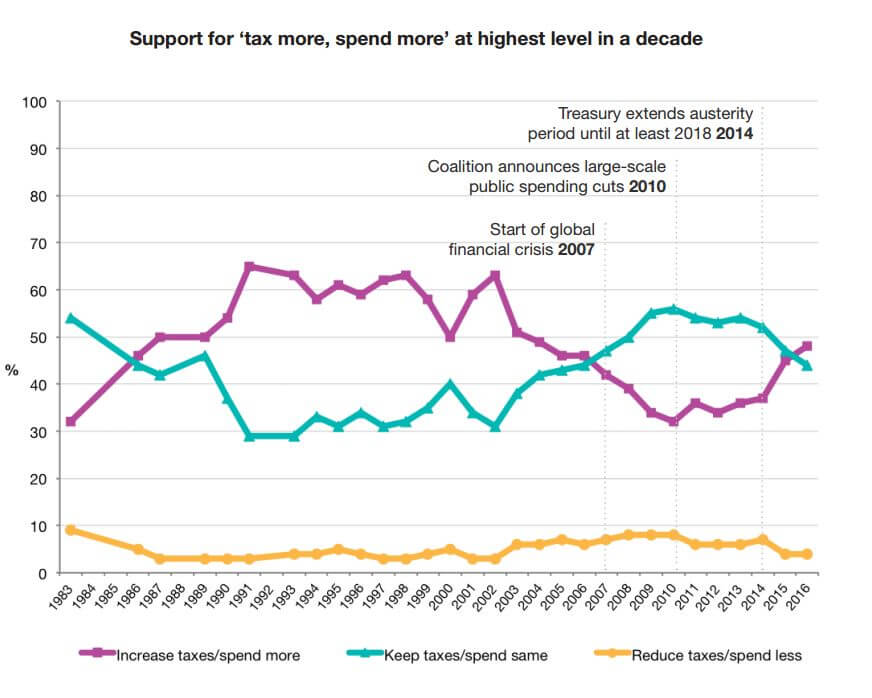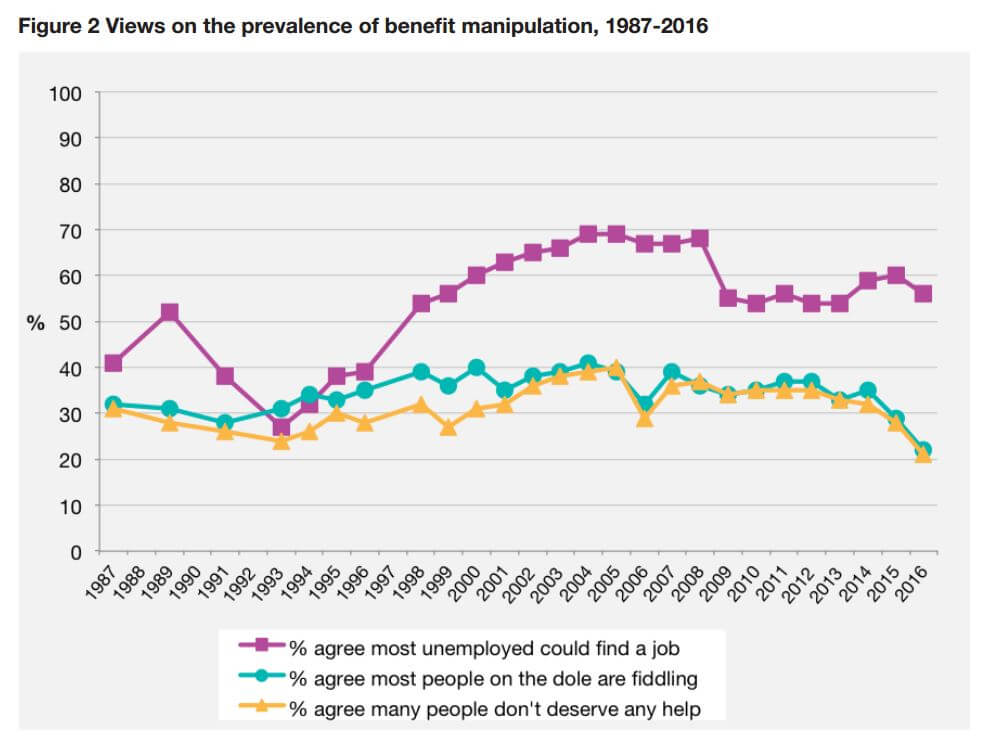

Merlyn Holkar, Research Officer, Money and Mental Health
Funding health, not just the health service
Headlines from the British Social Attitudes survey 34
British attitudes appear to be softening. We’ve not lost our British cynicism yet, but figures out today show that Brits are certainly more generous than in previous years. Nearly half (48%) said they are in favour of higher taxes to fund more government spending, the highest level since 2004, and fewer people than ever said that ‘most’ people on benefits ‘don’t deserve support’.
However there is a disconnect when it comes to our government spending priorities. Brits are passionate backers of the health service, but far less enthusiastic about funding the welfare system, despite the important role that this plays in supporting the nation’s wellbeing – and a widespread belief that those in receipt of benefits are deserving of support. These findings come from the British Social Attitudes survey, an annual study that gauges people’s attitudes on key political, social and moral matters.
NHS: a national religion
The latest figures show that eight in ten (83%) Brits support increased government spending on health. This attitude appears deeply ingrained, as over the years the health service has consistently been ranked as the number one spending priority. In this latest study it was more than twice as popular as spending on the environment and more than five times as popular as spending on unemployment benefits. This is testament to the deep affection people hold for the NHS, sometimes described as the ‘national religion’.
At Money and Mental Health we welcome this popular support for the health service. In our manifesto for the recent election we called for investment in mental health services in particular, to make the ambition for “parity of esteem” a reality.
Tackling the social and economic determinants
However, too blinkered a focus on the health service would be problematic in itself. Health isn’t a discrete aspect of people’s lives, that can be considered in isolation from broader economic and social factors. As our research shows, health outcomes are often intricately related to other aspects of people’s lives, such as relationships, employment and people’s finances. All too often shocks like a job loss or physical health problem can precipitate or aggravate mental health problems. The welfare system can play a crucial role here in softening the blow, and thus sparing the health system further demand down the line.
To tackle these interlinking problems more systematically, Money and Mental Health have called for closer working between the health service and advice sectors, and we’ve also demonstrated the health benefits of this approach, showing that helping people to resolve their financial problems could boost depression and anxiety recovery rates. There is a similarly rich literature on the social and economic determinants of physical health problems.
Yet despite this evidence, the public is still (relatively) reluctant to put more funding into the benefits system. Only 16% support increased spending on unemployment benefits, and this figure has halved in the last 20 years.
Connecting heart and mind
Attitudes on benefits do vary somewhat, between people of different political persuasions and different income brackets, but the general picture is clear; attitudes appear to be softening, but levels of mistrust remain relatively high. The public is less suspicious of benefit claimants than at any time in the last 30 years, but one in five (22%) still think that ‘most’ benefit claimants are fiddling the system, and 21% say that many people don’t deserve any help.
So, whilst Brits appear to be more compassionate than in previous years, when it come to tax and spend, there is a stark difference in attitudes towards different types of spending. Our passion for the health service is at odds with our disdain for the welfare system; even when most Brits understand why people on benefits deserve support, they still don’t want to prioritise investment. And if we’re serious about improving the nation’s health, then we need to be frank about the social and economic factors at play, and appreciate the extra-health services that play a vital part in supporting resilient and healthy lives.
Read the full British Social Attitudes Survey (34) here.

